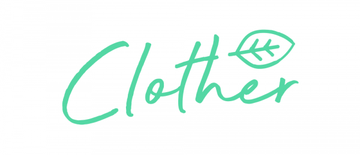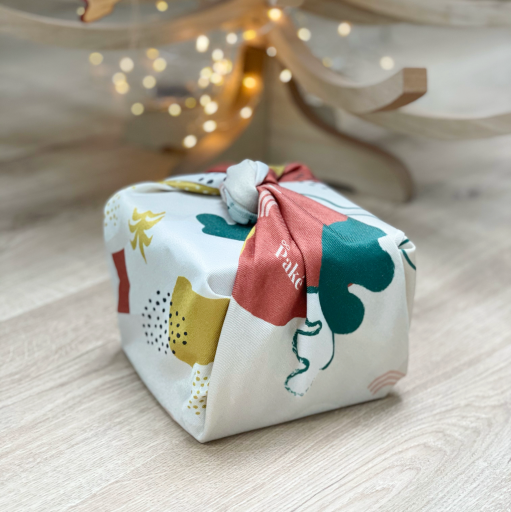Is vegan in fashion necessarily eco-responsible? First of all, we would be tempted to say yes! 🤷♀️ But as usual, this Clother article is here to bring you a little nuance!
Silk, cashmere, wool, leather, feathers... materials of animal origin are often hidden in our clothes. To dress vegan, you must therefore completely replace these textiles. But therein lies the subtlety of the eco-responsibility of vegan clothing: what should we replace them with?
Vegan clothing according to fast fashion
Fashion brands – particularly fast fashion – have replaced materials of animal origin with synthetic materials, because they are much cheaper to produce, and easier to produce in large quantities! The clothing will therefore be vegan, but its carbon footprint will be significant, because the materials are derived from petroleum, and the lifespan of the clothing is often very limited.
Leather becomes imitation leather (plastic-induced fabric), wool becomes polyester, down in down jackets is replaced by polyamide…
In addition to the disastrous carbon footprint of these materials, there are also astronomical quantities of microplastics that end up in the oceans when we wash these clothes.
Vegan clothing yes, but neither ecological nor sustainable.
Non-vegan clothing can be sustainable
On the contrary, natural materials of animal origin can often boast a very reasonable carbon footprint. Let's take the example of a wool sweater:
-
Wool is not a petroleum derivative
-
Wool does not require any fertilizer or pesticide to grow*
-
Wool clothing is washed much less often and therefore consumes much less water. In addition, it does not release any micro-plastics.
-
Wool is a durable material, for clothes that can be kept for a long time.
Ultimately, and over its entire life, a wool sweater can therefore have a very reduced carbon footprint, compared to other materials.
*Obviously, other elements must be taken into account to have an overview of the environmental impact: What food do animals eat? Where does wool come from? etc.
For non-vegan clothing, ensure respect for animals
For people for whom the vegan criterion is not important, we nevertheless invite you to put the following solutions into practice.
1. Check that wool clothing is mulesing free. Museling is a shearing technique that literally mutilates animals. This technique is still very widespread in Australia, one of the world's leading exporters of wool (including merino).
2. Try to find wool clothing with the RWS (Responsible Wool System) label. It is a standard which aims for the well-being of sheep and respect for nature. The controls relate in particular to the food given to the animals, the grazing space available, and the care provided.
3. Obviously ban fur from our clothing purchases.
Increasingly eco-responsible vegan alternatives
You will have understood, it is therefore a question of digging a little deeper than the simple vegan name present on the label.
Do you want the good news? There are more and more brands that are doubling their creativity to combine vegan AND eco-responsible fashion. It is possible to replace virgin wool clothing with recycled wool.
We think in particular of Rifò which recycles cashmere to offer you cruelty-free clothing while reducing waste. Vegetable leather solutions are gradually being developed to replace animal leather: leather made from pineapples or grapes, particularly for shoes and leather goods.
Another solution is obviously upcycling, like the Saint Lazare brand and its belts upcycled from fire hoses.
Tencel – or lyocell – which is a natural fiber made from wood pulp, is an excellent alternative to silk. It is often nicknamed plant silk. Avani Apparel is a Swiss brand that offers magnificent clothing in this soft and breathable material.
Some brands on Clother even have the PETA (People for the Ethical Treatment of Animals) label, a non-profit association protecting animal rights and welfare.
We are working to make this criterion more visible on our site! In the meantime, discover our selection of nearly 30 committed brands .
Combining vegan and eco-responsible
Again, not everything is black and white. Everyone's position will vary according to their beliefs, tastes, and priorities.
Promoting vegan clothing is obviously an excellent thing… But if we can combine vegan and eco-responsible it’s still much better! And it's more and more often possible, thanks to the new alternatives that are appearing. At Clother in any case, you will find some of them.
For those who still love a piece made from animal material, like a wool sweater, no guilt! Try as much as possible to pay attention to the breeding conditions for animal-friendly wool (RWS label for example) or opt for recycled wool.
Finally, ensuring that we buy cruelty-free clothing is a necessity: we must ban fur from our wardrobes, and if possible leather. If, on the other hand, you already have a leather or fur garment in your wardrobe, take care of it, because this garment will last a long time, and will not need to be replaced too quickly.














